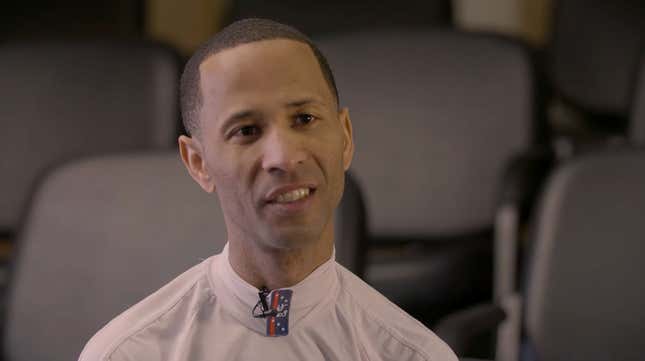
During this year’s Kentucky Derby, fans will be allowed to attend and partake in the festivities for the first time since the pandemic began. That won’t be the only first; Kendrick Carmouche will become the first Black jockey to compete in the derby since 2013, per the Louisville Courier-Journal.
Much like the rest of us, the Louisiana native had a rough 2020. He maintains that he’s never experienced racism—I would beg to differ, but let me mind my business—yet has been deeply affected by our racial climate and the fact that it has intensified over the course of the past year. As such, he uses his platform to address these issues in our country and often pushes for solidarity.
“It is very sad to see what is going on in the world,” he said in a video shared on social media in the aftermath of George Floyd’s death. The Houston native lost his life at the hands of Minneapolis police officers on May 25, 2020. “Finally, I got a good night’s sleep. This was tearing me apart. It took me three days to get myself to say something. I just felt I should spread the love. I want to touch people and spread love. Happiness and love is so much better than negativity.”
Days later, on June 3, with Carmouche finally set to return to Belmont Park after the coronavirus had shut down New York racing for 80 days, the jockeys decided that they would hold a moment of silence to honor those affected by the virus. It was at the suggestion of Carmouche and fellow veteran jockey John Velazquez, however, that the jockeys would also take a knee to show solidarity with those protesting racial injustice.
“It hurts me to see that I have kids growing up seeing the same things my parents went through, and their parents went through,” Carmouche told BloodHorse at the time. “The president [Trump] is saying things that shouldn’t be said,” he stated. “People are doing things that shouldn’t be done in America. I hope that my kids never have to go through this, but we saw what happened to George Floyd, and to plenty of people before that.”
Carmouche’s racing career began at the age of 16 in 2000, and in the 21 years since, he’s raced all over the country—from Louisiana to Texas, then onto Philadelphia—and he’s currently one of the best in the business in New York. To do so, he had to bounce back from a broken leg that he suffered in 2018 and endure a grueling six-month rehab. And that dedication has paid off, as he’s now enjoying one of the most successful streaks of his career, which includes his first Grade 1 victory in December.
“If you don’t dream it, it’s never going to happen,” the 37-year-old said. “I dreamed it. To be here at this point and how long it took and the hard work that I put in to get to this point […] going to the Kentucky Derby, this is icing and everything on the cake.”
He’s also adamant that despite the lack of Black jockeys in his sport, he wants to serve as an inspiration for all jockeys looking to follow in his footsteps.
“I think people just need to open their eyes and realize it doesn’t matter what color you are,” Carmouche said. “You work hard. You’re an honest person. You want the best for you and your family and the team you’re putting together at the track so you can win races.”
He’s also confident that his nearly 3,400 career wins and $118 million in career purse earnings have prepared him to collect his first win at the Kentucky Derby on May 1.
“The only thing I should do is just park [my horse Bourbonic] right in the winner’s circle,” Carmouche said. “That’s what I’m thinking. I’m coming to get those roses, baby. If I’m 2-1 or 100-1, that’s the way I feel. […] I’ve got the corn. I’m going to make the chickens follow me.”
And hopefully, he’ll continue to serve as a catalyst for change in the process.



